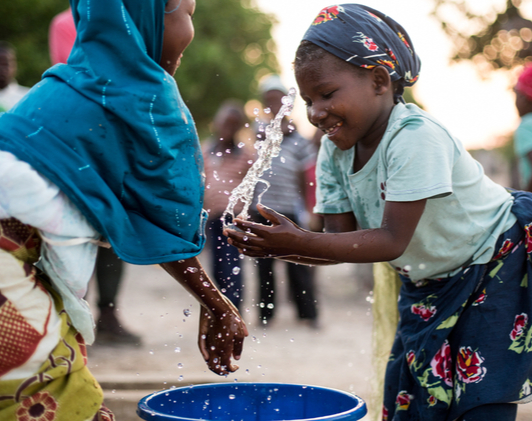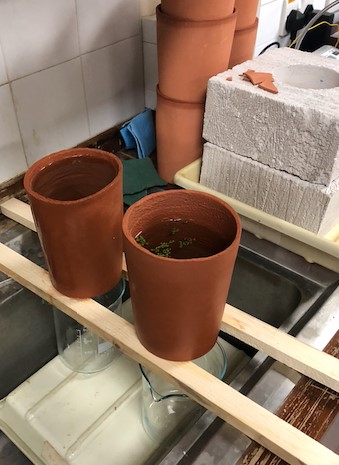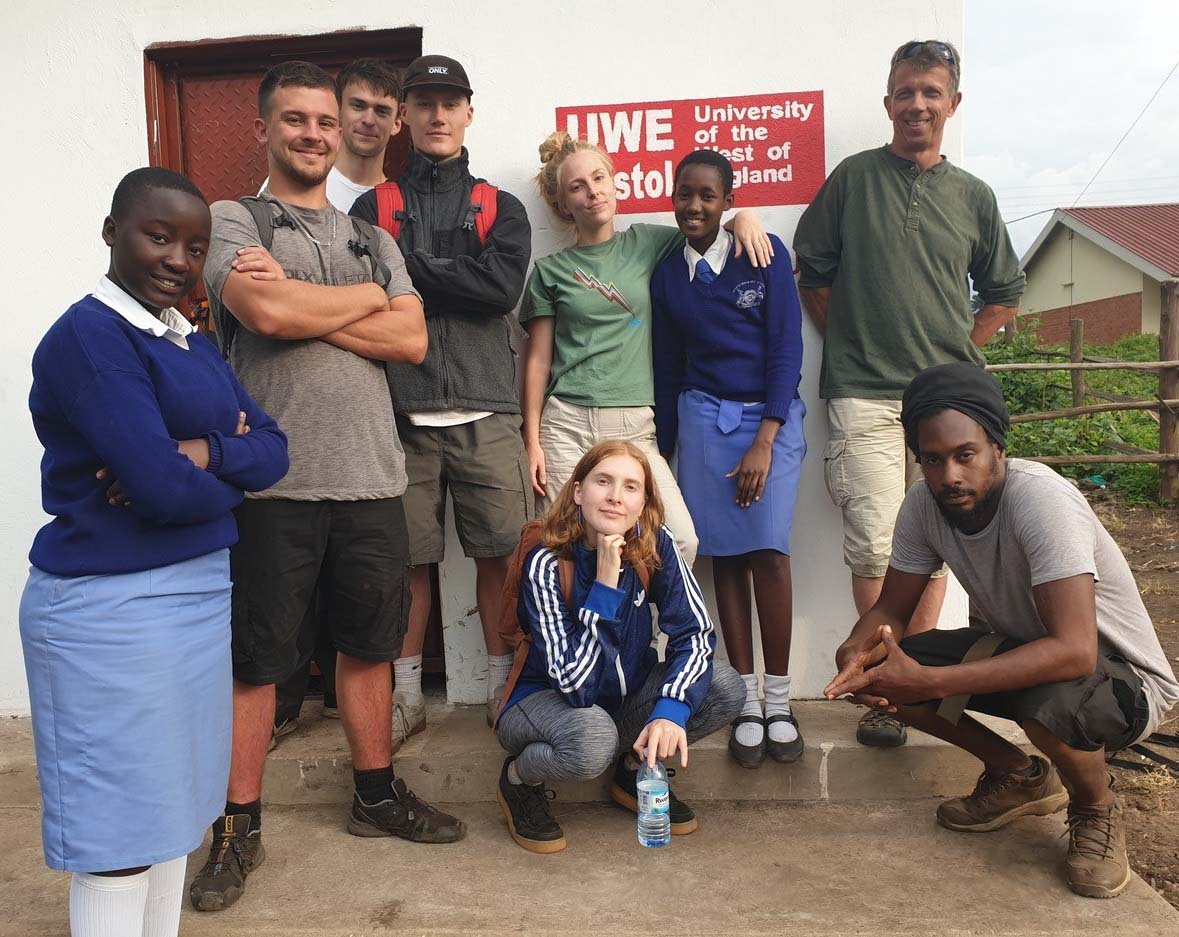“Wash your hands” has been one of the most important pieces of health advice during the COVID-19 pandemic – but what if you have no access to clean water? The International Water Security Network (IWSN), which Lloyd’s Register Foundation has been funding since 2013, is providing practical help to African communities whose lack of a safe water supply makes the risk from the pandemic even greater.
IWSN Director, Professor Chad Staddon from the University of the West of England (one of the three participating institutions alongside the University of Arizona and Monash University in South Africa) asks: “If a key COVID-19 measure is hand hygiene, what about the three-fifths of the world which doesn’t have safe access to clean water?”

Building on their existing work, helping African communities to develop sustainable safe water supplies, the IWSN is working with African colleagues to help. They’re working with local stakeholders to improve water services. An ongoing focus of activity is the installation of better handwashing facilities in residential schools. They’re working with the marginalised Batwa people in south western Uganda, donating soap and installing ‘tippy-tappies’ – improvised hand-washing stations made from large vegetable oil bottles on sticks. “When tipped, these pour out a small amount of water before righting themselves, providing reliable handwashing for people who do not have indoor sanitation,” Chad explains.
Lloyd’s Register Foundation is helping the IWSN work across the globe to improve water security – from protecting wetlands in the Andes and improving water services in Africa to teaching English schoolchildren about how water security matters to their daily lives. The Foundation supports them by funding 24 PhD students (to date) to research and promoting real-world solutions that change lives and safeguard the environment.
One current challenge is providing clean water to communities in East Africa, using a sustainable, affordable technology that can be manufactured locally – ceramic pot filters. Using the material’s own natural filtering properties, the ceramic pot filters can provide safe water from rainwater, close to home. As well as avoiding the dangers of drinking contaminated water, it also means an end to fetching water from unsafe sources miles away then carrying it home. As well as taking girls out of education and thereby limiting their life chances, this sort of work causes physical injuries.

Chad explains: “We’re working in communities where the water supply is off-grid and mostly managed by end-users. In these circumstances, only a handful of technologies have the potential to be sustainable and safe. Ceramic pot filters, easy to produce, affordable and safe, may be part of the answer.”
A challenge in parts of East Africa is that groundwater can be difficult to access because of the presence of volcanic rock. But in equatorial countries, large quantities of water fall from the sky, especially during the rainy season. The challenge is capturing it and storing it safely. Large-scale ferrocement storage tanks are commonly used, but often crack within a few years of commissioning. IWSN researchers Alex Kirby and Jozef Denby studied the technical aspects of why the tanks were cracking and found that they were not being built or maintained as they should be. As a result of their research on concrete curing processes and sand-cement ratios, local tank constructors have new guidance about how to build future tanks more effectively.
This led to the IWSN team turning to the ceramic pot solution.
“We’re working with local groups to develop a new industry that produces concrete storage tanks to an agreed specification, informed by our earlier research. these tanks sit beside house or compound– and hold around 4,000-5,000 litres per household. We now need to make sure the water that comes out is safe – this is where the filters come in.”
As well as cracking easily, the ferrocement tanks had another problem. Once a leaf or an insect fell in, the heat of the equatorial sun quickly led to contamination, and the entire water supply could be made unsafe. Ceramic pot filters – which Chad describes as looking like “leaky flowerpots” - have the ability to filter out impurities – and perfecting this is the current task the IWSN researchers are working on.
“All we need to do is make the pot and let the water slowly leak through. This is a slow process – with a throughput of between three and five litres per hour - but the water can be better than 99.5% disinfected. The technical challenge is getting the number of micropores right by adding the right amount of burnout material to the wet clay. Ceramic pots also clean water using a biofilm of microbial matter which forms on the inside of the pot, and then eats all manner of microbial feedstock.”
The ceramic pots will provide not only clean, safe water for households but a source of income for local potters.

Working with local communities, the IWSN is teaching local people how to manage the ceramic filtration system and manage them on their own into the future. To help do this, IWSN identifies ‘rising stars’ from the participating universities and invests in their research, with help from the Lloyd’s Register Foundation grant. One trail-blazer was Molly Byrne, who worked with communities in Kenya in 2015 to find a safe, sustainable rainwater harvesting solution, and was awarded the IWSN-UWE student prize in 2016. Two more working on the same initiative are Declan Sealy who completed his work in 2019 and Josh Oldfield, who completed in 2020.





